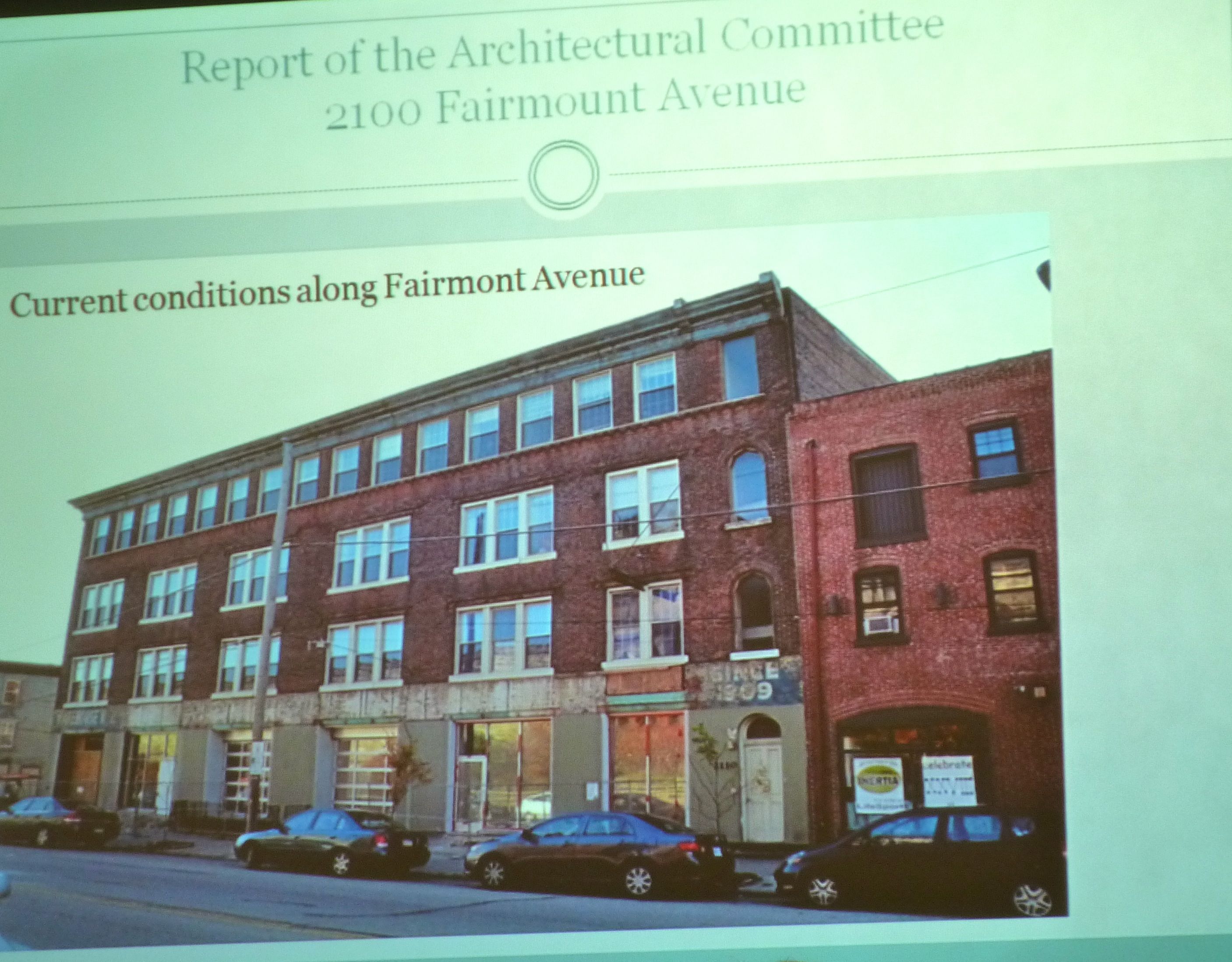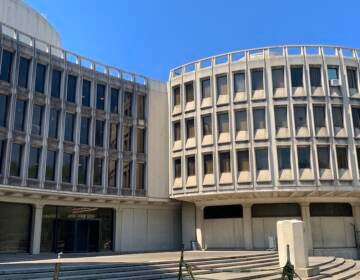Historical Commission denies legalization of latest Feibush project

Developer Ori Feibush has gained a reputation as a man who likes to take matters into his own hands — this summer, for example, he made headlines for his clean-up, and subsequent occupation, of a vacant lot in Point Breeze that adjoined a cafe he had opened.
Now he’s back in the hot seat as he attempts to assume ownership and redevelopment of a recently vacated coffee shop at 2100 Fairmount Avenue in the Spring Garden historic district.
The case is tied up at the Zoning Board of Adjustments but meanwhile on Friday, Feibush and his attorney, Carl Primavera, appeared before the Philadelphia Historical Commission to address his over-reach of an earlier okay granted by the Commission’s staff.
That initial approval allowed Feibush to remove stucco on the building so his architects could gather more information about its original ground floor lintels. But Feibush continued his renovation work without further approvals, and removed historic windows to install new aluminum windows, including garage-style cafe ones.
Last month, the Commission’s Architecture Committee recommended denial of the developer’s request for legalization of this work, but on Friday much of the 1 1/4-hour discussion centered on how to make the best of a bad situation.
In presenting a history of the building, Commission staffer Jorge Danta offered some older images of the structure which had surfaced upon further research and which had not been reviewed by the Architecture Committee. It turns out that the building is older than originally thought — it was built in 1898 to house a cigar factory, not in the 1920s.
After running through a litany of its light industry tenants through the years (piano string maker, cabinermaker, printer, tin maker) and the alterations that they had made along the way, Danta summed up by noting that a “true restoration of the ground floor is not possible.”
The applicants next presented their case, saying that they had walked into the project under the assumption that it would be a turn-key business, but that when they arrived the building had been pock-marked by graffiti and broken windows. (Later, Antoinette Levitt, president of the Spring Garden Civic Association, speaking in opposition, claimed that this was never the case.)
Acknowledging that the developer had over-stepped, Primavera assumed an appropriately humble tone to match Feibush’s suitably downcast mien, and said that now, “we think we’re on the right track.”
This comes down to a “question of forgiveness,” said Commissioner Dominque Hawkins, adding that the Commission would never have approved an application for all the work that has already been done, so to do so after the fact would set a “bad precedent.”
Commission Chair Sam Sherman posed a question, “wearing my developer’s hat,”: Was there anyway, he asked, “of saving some of the work that had already been done?” Trying to “jerry-rig” the work, Hawkins replied, was not the right approach. Commission executive director Jonathan Farnham offered that the staff has met with the project’s architects to discuss such a feasibility, and that they had had a “hard time finding an appropriate solution.”
During the course of the session, five neighbors spoke in opposition to the project. John Gallery, executive director of the Preservation Alliance, also entered comments into the record, accusing the Commission of “bending over backwards” to help the applicant.
But, several Commissioners, said, this body was not about “meting out punishment” and, added Sherman, was “as much about economic development and encouraging business.” Primavera picked up on that thread, saying that no one wants a “boarded-up business.”
Commissioner Robert Thomas suggested that the applicants take the time to look around the neighborhood and find similar adaptive reuses that offered the large cafe-style windows that Feibush desires while retaining the historical features that the Commission prefers.
A motion was put forth to deny the application for legalization of the renovations. It passed unanimously, and now Feibush and his team will have to come back with a plan to un-do the damage. Meanwhile, he’s vowed in online forums to open the building soon, and his zoning case has been continued until Jan. 9.
In a relatively speedy wrap-up, the rest of the meeting concerned two review and comment cases for new construction (one in Spring Garden, one in Old City), where applicants provided substantial and satisfactory updates in responses to suggestions from the Architecture Committee; and one application for the construction of a three-story addition, also in Spring Garden, which — because it involves too much demolition of historic fabric — was denied.
Contact the reporter at jgreco@planphilly.com and follow her on Twitter @joanngreco
WHYY is your source for fact-based, in-depth journalism and information. As a nonprofit organization, we rely on financial support from readers like you. Please give today.




